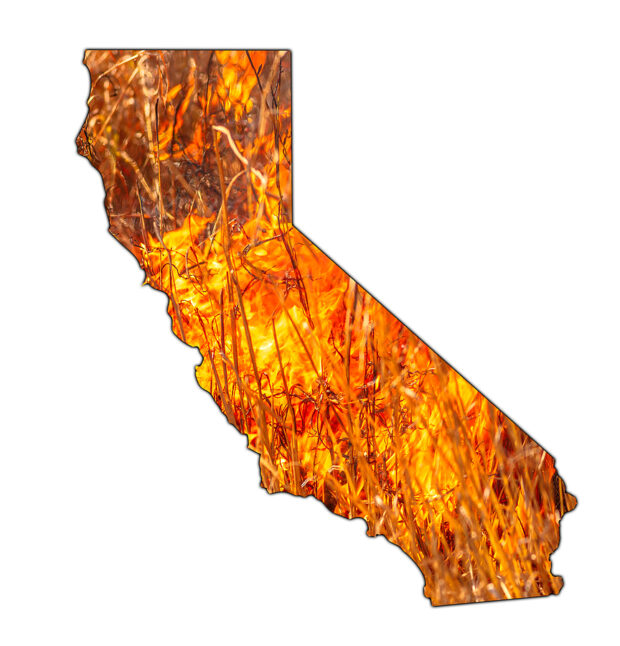California Insurance Commissioner Ricardo Lara said he will allow catastrophe modeling to be used in rate regulation for wildfires, a move he says will help restore insurance options for Californians, including allowing.
It was the latest phase of Lara’s Sustainable Insurance Strategy. Catastrophic insurance losses are defined as those that are larger and affect multiple policyholders as a result of a severe event. California regulations have allowed insurance companies to apply a catastrophe factor to insurance rates based on historical wildfire losses, rules that Lara said has contributed to rate spikes and balloon premiums following major wildfire disasters without fully accounting for the growing risk caused by climate change or risk mitigation measures.
Related articles: No Sugarcoating: Availability Before Affordability, Calif. Regulator Says: California’s Next Steps: Picking the Right Cat Models and Staffing Up; Rebuilding the California Property Market: Reinsurance Costs and Recent Reforms

Currently, the CDI allows the use of catastrophe models for earthquake losses and fire following earthquake. The proposed regulation expands the allowable use of catastrophe models to include wildfire, terrorism, and flood lines for homeowners and commercial insurance lines.
Lara’s strategy addresses a major limitation of Proposition 103, passed by voters in 1988. Under that law, insurers are free to propose rates at any level needed to cover future losses.
According to the CDI, the changes mean:
- Insurance consumers will have more stable costs than under current regulations, which have resulted in sudden and steep increases for those at higher risk of wildfire.
- Insurance companies will increase their writing because they can better anticipate future losses, rather than making abrupt decisions to non-renew higher-risk policyholders, pause writing, or rapidly increase rates.
- The CDI will have public oversight of modeling, which is already being widely used by insurance companies outside of rate-making and across the nation. The department will have access to models and build expertise, so California can continue to lead on consumer protection.
Mark Sektnan, APCIA vice president for state government relations, commended Lara for prioritizing the = reform.
“As Californians grapple with record inflation and become increasingly vulnerable to climate-driven extreme weather, including catastrophic wildfires, this is a critically needed tool to help identify future risks more accurately and set rates that reflect our new reality,” he said. “More accurate ratemaking will help restore balance to the insurance market and ensure all Californians have access to the coverage they need. We look forward to working with the Department of Insurance on implementing this forward-looking solution and other desperately needed reforms to fix the insurance crisis.”
The department will hold a public workshop to take input on the proposed regulation on April 23, 2024, at 2PM/PT.
This article was originally published by Insurance Journal.





















 AIG, Chubb Can’t Use ‘Bump-Up’ Provision in D&O Policy to Avoid Coverage
AIG, Chubb Can’t Use ‘Bump-Up’ Provision in D&O Policy to Avoid Coverage  Retired NASCAR Driver Greg Biffle Wasn’t Piloting Plane Before Deadly Crash
Retired NASCAR Driver Greg Biffle Wasn’t Piloting Plane Before Deadly Crash  Execs, Risk Experts on Edge: Geopolitical Risks Top ‘Turbulent’ Outlook
Execs, Risk Experts on Edge: Geopolitical Risks Top ‘Turbulent’ Outlook  Winter Storm Fern to Cost $4B to $6.7B in Insured Losses: KCC, Verisk
Winter Storm Fern to Cost $4B to $6.7B in Insured Losses: KCC, Verisk 










